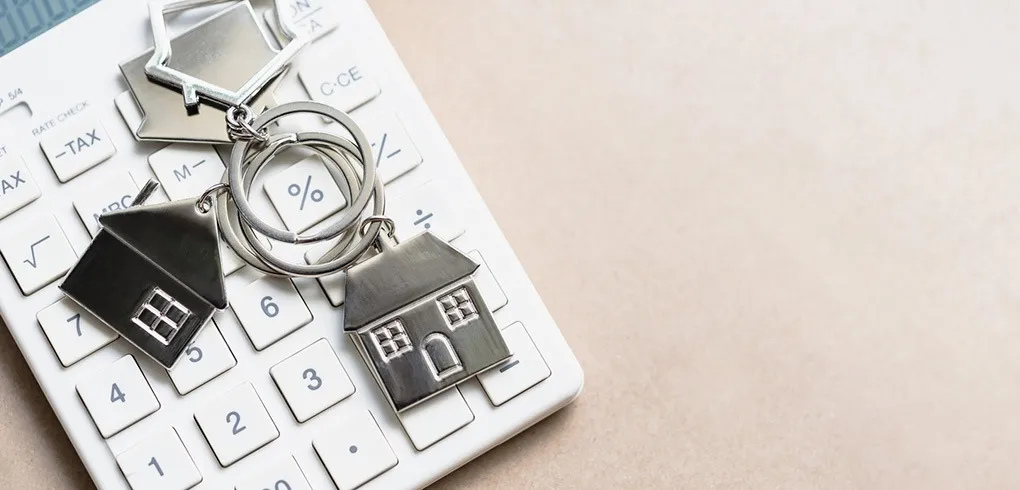In this guide, we’ll go over the answers to the question: “Why would a mortgage be declined after AIP?” We’ll also explain what you can do next to improve your chances of getting a mortgage approved after being declined, as well as how a broker can help you navigate a new application.

Mortgage Declined After AIP
Had a mortgage declined after AIP (Agreement in Principle)? We explain how often this happens, why a mortgage may be declined, your options & more.
speak to a mortgage advisor
Fill out this enquiry form and we’ll contact you to book a free call with one of our mortgage experts.
"*" indicates required fields
Getting a mortgage Agreement in Principle (AIP) is a big step towards getting your loan sorted. However, an AIP doesn’t mean that you’re definitely going to get offered a mortgage. It’s still possible to get declined even if you’ve had an AIP. Getting declined at this stage can be disheartening, but this does not have to be the end of your property buying journey.
Contents
What Is the AIP?
The AIP or Agreement in Principle is also known as the Decision in Principle (DIP). This is a provisional agreement between a lender and a borrower that they will lend you a stated amount based on the information you’ve provided.
The lender will do further checks after this stage once you submit a full mortgage application; they will underwrite your application and instruct a mortgage valuation for lending purposes on the property. This means that the conditions of your final mortgage offer could be different from the AIP, or that your application could get rejected.

How Often Are Mortgages Declined After AIP?
Once you have been offered an AIP, you’ll usually be in a good position to make an offer on a property and submit a full mortgage application. Nonetheless, there are still issues that can crop up after this as the lender has to underwrite your application and instruct a valuation on the property.
Why Could a Mortgage Get Declined After AIP?
There is a range of reasons why a mortgage application could be declined after the AIP. Here are some of the main factors that could jeopardise your mortgage application.
- Paperwork issues – with the amount of paperwork that’s involved with applying for a mortgage, there are plenty of opportunities for errors to slip in. It could be an issue when filling out paperwork or an administrative issue made by the mortgage lender’s team. If it’s a severe issue, your application could be declined
- Discrepancies in your paperwork or concerns about foul play – as well as harmless mistakes, a lender will be looking out for any chance of foul play. If the lender suspects that you’ve lied on your application, or they have any reason to believe the application is fraudulent, it will be declined
- Change of income – the loan value stated on your AIP will be based on your declared income. If your income changes, this will also change the size of the loan you can afford. If your income drops, you might no longer qualify for the mortgage presented in the AIP
- Difficulty proving income – it’s relatively simple to show a lender sufficient proof of your income whether you’re in regular employment or self-employed. However, if for example you’re a waitress and receive a lot of cash tips lenders won’t typically accept this as a form of bonus or commission
- Change of circumstances – even if your income or outgoings gave you a certain level of affordability for the initial AIP, if your circumstances change, you could be rejected. If your outgoings increase this could lower your possible loan size. If your employment has changed, even to a job with the same salary, it could suggest that your income is less certain. This is particularly the case if you have lots of recent employment changes
- A credit check shows issues – lenders will usually look at your credit history before offering an AIP and again when they’re underwriting your full mortgage application. If any new findings are uncovered in your second credit check, for example you’ve taken out a new line of credit, or have had any recent issues such as late payments, defaults, county court judgments, bankruptcy, etc. the lender may reject you
- Unsuitable deposit source – you’ll need to prove the source of your deposit to show the lender that it’s acceptable. While lenders almost always accept personal savings or gifts from parents, there are less preferable deposit sources. If a lender later finds out that your deposit is a loan from parents or comes from gambling, overseas savings, friends, employers, or untraceable cash funds, your mortgage could be declined
- Taking out other loans – if you take out other loans after your AIP, this could affect how lenders see you. Taking out other loans will affect your affordability as well as suggest that your financial position is not as stable as previously thought
- Lender criteria – there are 2 issues with criteria that you might face after the AIP. Some lenders do not tell you all the finer details of their criteria before the AIP. This means that you might find you don’t meet all their criteria, even if at first you thought you were eligible. There is also the risk that a lender could change their criteria during your application. Mortgage lenders change their criteria frequently as they have to keep up with the current market and protect themselves against new risks. This unfortunately means that criteria could change and the lender is no longer able to offer you a mortgage
- Incorrect house value – the property valuation stage usually happens later in the mortgage application process. If the house or flat value is found to be significantly lower than the loan amount, a lender may not be willing to offer a mortgage on it. This is because they need to ensure the property can cover the total value of the loan if you default on payments and they have to repossess and sell the property
- New problems with the property – if there are new issues with the property, such as contaminants, damage, structural concerns, or new information about the area, this could make it too high a risk for lenders to want to make a mortgage offer
Of course, this list is not exhaustive. There are many factors that could come into play and lead to your mortgage being declined. You should be sure to get expert advice from a mortgage broker if you’re unsure why you have been declined after AIP.
Will I Have to Apply Again if My Mortgage Is Declined?
Once you’ve been declined for a mortgage, you’ll usually have to start again with a new lender that has criteria that better aligns with your situation. There might be some cases where a broker will be able to dispute a decision where a mortgage lender has declined your application, but typically you will have to begin the process again.
It’s worth making sure that your application has the best chance of being accepted in order to avoid having to go through too many applications and hard credit checks as this can damage your credit profile. The best way to ensure you have the best chance of securing a mortgage is by using a mortgage broker like John Charcol. We can match you with a lender with criteria that aligns with your situation. We can also find out why an application is rejected and give you advice on what you can do to improve your chances next time.
Does Being Declined After AIP Affect My Credit Score?
Having a mortgage application declined will not directly affect your credit score. However, making a number of mortgage applications in a short period of time can negatively impact your credit score. This is because each time you submit a mortgage application the lender will have to carry out a hard credit check which will leave a footprint on your profile. And, having too many of these can bring down your secure and indicate you’re having trouble securing credit.
This also happens with other types of loans, so you should make sure not to take out new lines of credit when you’re looking for a mortgage. If you’ve already been declined for a mortgage, you should consult a mortgage broker who can give you the best chance of success on your next application. Also, if you’re able to, you may want to consider waiting to apply for a mortgage until you’ve paid off any debts, been working in a new job for longer and/or improved your credit score.
What Should I Do if My Mortgage Gets Declined After AIP?
As we’ve just said, the first thing to do after getting a mortgage declined after AIP is to speak to your mortgage broker. We’ll be able to explain why the lender has declined your application and what your next steps are – whether you should reapply with a new lender or spend some time improving your credit score, etc. Don’t blindly reapply with another high street lender without consulting a broker or making any changes as you may find you’ll be rejected again which can damage your credit profile and make it even harder next time.
Brokers will also have the knowledge of the right type of lenders to approach with your case. Even if you’ve had a Nationwide mortgage declined after AIP or a Halifax mortgage declined after AIP, there may be plenty of lenders who could consider lending to you. This includes finding lenders that can consider complex incomes or lenders that are more willing to work with clients who have poor credit histories. Brokers also have access to a wider range of lenders, since there are some lenders who will only go through intermediaries, rather than dealing with clients directly.
How to Improve Your Chances of Being Approved
If you’re hoping to get your mortgage approved when you next apply, there are various things you can do to boost your chances. The most important thing is to work out why your application was declined. This will let you focus on the most important factors first.
Find Lenders with Different Criteria
Often, people find that their mortgages are declined because they’re trying to get a loan from a lender with inappropriate criteria for their situation. This may especially be the case if you’ve gone through a high street lender. However, just because you’ve had a Barclays mortgage declined after AIP or Bluestone mortgages declined after AIP, this doesn’t mean that you can’t get a mortgage. You might just need to find a lender that specialises in your type of borrower. John Charcol’s experts can help you find the right lender for your needs.
Increasing Your Affordability
One of the most common reasons for a mortgage or remortgage to be declined is affordability. To help you get your home or avoid being a mortgage prisoner, you can increase your mortgage affordability. This could be done by increasing your income or by finding a lender that will include all your income for the affordability calculations, for example some lenders will only consider 50% of bonuses but some will consider up to 100% of bonuses that can be evidenced on a P60. You could also look at paying down debts or decreasing your other outgoings in order to free up more money for your mortgage payments. Using a repayment calculator can help you work out how much your affordability is. Reducing the amount you want to borrow and therefore the LTV (loan-to-value) of your mortgage can also increase affordability and make you a more attractive prospect for a mortgage.
Improving Your Credit History
If a mortgage has been declined due to your poor credit history, it might seem obvious to improve your credit score, but it’s obvious for a reason. Having a better credit profile will make you seem like a more reliable lending prospect, and often secure you a better deal. To build your credit score, you could look at the following steps:
- Making loan payments on time
- Paying down debts
- Using a smaller percentage of your available credit
- Not taking out more loans
- Not using unapproved or unplanned overdrafts
- Settling any county court judgments, defaults, or outstanding amounts
- Waiting for more serious credit issues such as bankruptcy or house repossessions to leave your credit report (adverse credit events stay on your credit report for 6 years)
Putting Forward a Higher Deposit
Putting forward a higher deposit can also help you overcome other mortgage application issues. This is because a higher deposit will decrease the LTV of your mortgage. Having a lower LTV makes your application more attractive to lenders due to the lower risk involved. It can also improve your affordability since you’ll be paying back a smaller total loan and can give you access to better rates and deals.
Picking a Different Property
While it might not be your ideal option for securing a mortgage, you could find it easier to get a mortgage if you pick a different property. This is especially the case if the property you have chosen is outside your affordability, or if there are issues with the property, such as damp or even non-standard construction. Remember that lenders are less likely to want to lend on properties that represent higher risk. Mortgage applications for non-standard construction properties, such as buildings near natural hazards, or high-rise flats, are more likely to be declined or may require specialist lenders with criteria that allows them to consider these types of security.
Mortgage Declined After AIP: Summary
The Agreement in Principle is a tentative confirmation from a mortgage lender. It usually means that the lender will accept your mortgage request as long as no new issues show up in the later stages of the application. However, it’s entirely possible for a mortgage to be declined after AIP due to a wide range of potential issues, such as affordability, credit history, changes to lending criteria, a change in your circumstances, and others.
If you’ve been declined after AIP, there are lots of ways you can try to improve your chances of getting approved next time, including speaking to a broker, working on your credit score and affordability or putting forward a higher deposit.
To maximise your chances of getting a mortgage, speak to an expert mortgage broker. Here at John Charcol, we have experienced mortgage brokers who’ll be able to find a lender that suits your circumstances. We also have access to an incredibly wide range of lenders, including those who don’t deal directly with the public. We can help advise you on how to improve your application. Get in touch today to see how we can help your mortgage process.

How Likely Are You to Get a Mortgage After Agreement in Principle?
It’s easy to assume that if your mortgage Agreement in Principle is accepted and shows that you’re an eligible borrower, you’ll be able to secure a mortgage quickly. However, as we’ve shared in this guide, a mortgage Agreement in Principle doesn’t guarantee that a lender will accept you for a mortgage loan.
When you submit your full mortgage application, the lender will perform a hard credit check, carry out underwriting on your application and arrange a valuation of the property. Assuming you meet all the lender’s criteria during this part of the process, you should expect to receive your mortgage offer. If you still meet the lender’s criteria but upon these further checks some details are slightly different from those you provided in the Agreement in Principle – e.g. the property you want to buy is actually cheaper – the lender will likely amend the loan amount to reflect your reduced borrowing need.
Mortgage Declined After Agreement in Principle
Learning that your mortgage declined after “Agreement in Principle” can be discouraging.
Though a setback, remember that each mortgage broker or lender has their own criteria that you’ll need to meet.
Having a mortgage declined after Agreement in Principle could be a result of:
- Changes to your circumstances or new findings uncovered in your credit check – e.g. your income has changed or you’ve taken out a new line of credit
- An increase in your outgoings or findings that they were incorrectly stated at the Agreement in Principle stage
- An issue with the property found during the valuation
- The evidence you’ve provided not aligning with the information you gave the lender at the Agreement in Principle stage
- An issue with you not meeting the lender’s criteria – e.g. perhaps the mortgage term you requested would put you over the lender’s maximum age limit
- Or something else
Remember: being rejected by one lender doesn’t necessarily mean you won’t obtain a mortgage from another.
If your mortgage is declined, there are several things you can do. Firstly, with the support of your mortgage broker, you can spend some time understanding why the lender, such as HSBC or Barclays, has denied your application. Seeking this information will offer insight into any changes you could make ahead of your next application.
After identifying the cause of your mortgage application rejection, you can begin to make some changes. These changes may include the following:
- Decreasing your monthly spending – if your monthly outgoings are high, lenders may deem you unsuitable for a mortgage due to being unsure if you’ll be able to keep up with your mortgage repayments. Decreasing your monthly spending can assure lenders that you’ll keep up to date with repayments
- Saving a larger deposit – though most mortgage lenders require you to have at least a 5% deposit, a larger deposit can enhance your chances of being accepted for a mortgage
- Requesting a smaller loan – if your mortgage request is declined, consider whether you could move forward with a smaller loan
- Improve your credit score – improving your credit score is another way to better your chances when it comes to securing a mortgage. Ensuring that you pay your bills on time and repay any loans and overdrafts you have can support this
Upon making some changes and/or consulting your mortgage broker, you may be able to move forward with applying for a new Agreement in Principle and then mortgage application with a different lender – one with criteria that better aligns with your situation.
How We Can Assist You at John Charcol
At John Charcol, we have more than 45 years of experience in sourcing mortgages. As experts in our field, we support clients in finding suitable mortgages regardless of whether they’re first-time buyers, remortgaging, or buying to let.
We can guide you through securing your mortgage Agreement in Principle meaning you don’t have to handle this hassle alone. We’ll also manage your entire mortgage application for you, taking you through it step by step and ensuring a smooth transition to homeownership.
Contact us today by calling 0808 273 2191 to speak with one of our highly experienced mortgage brokers.
